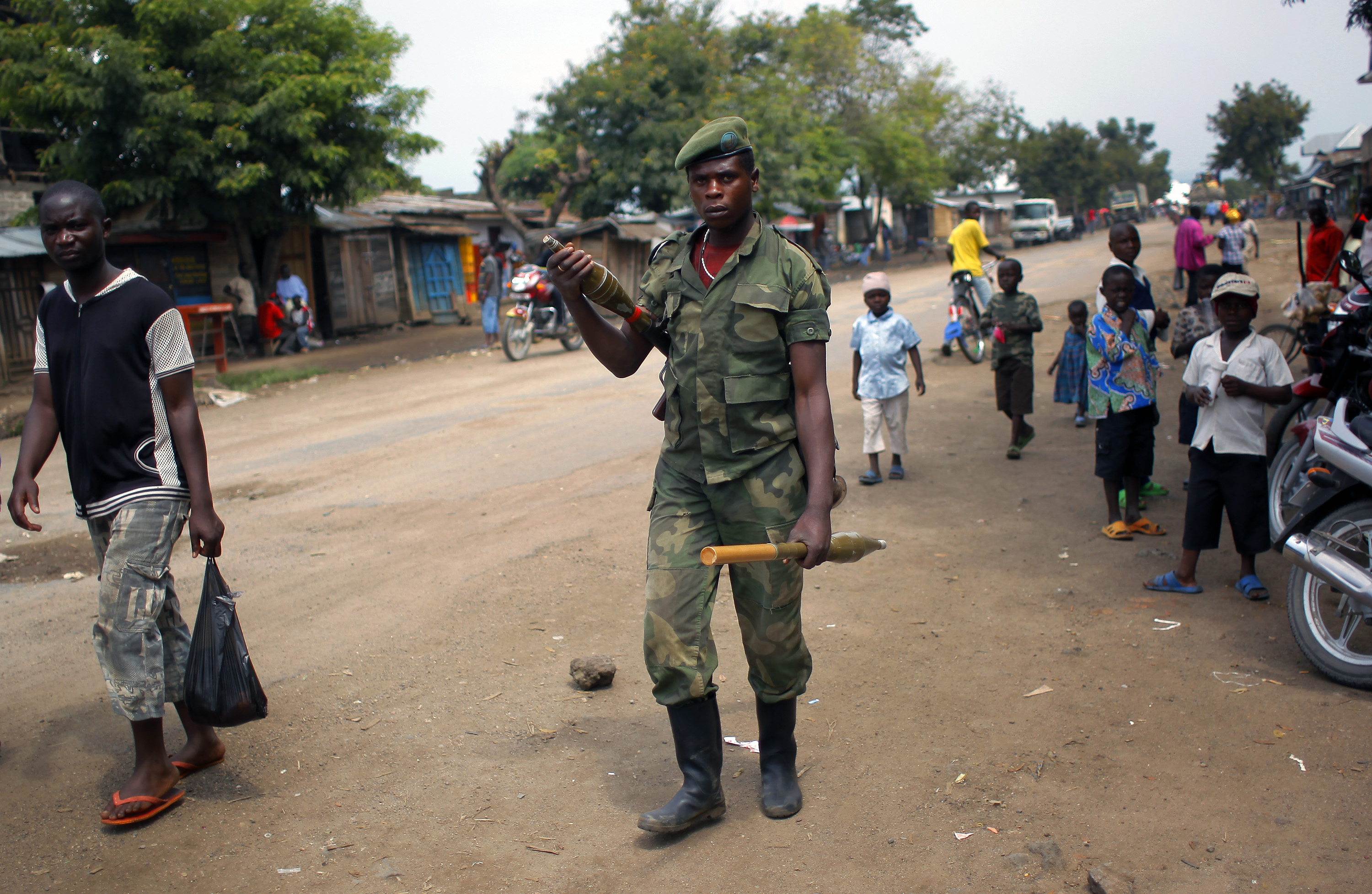RUTSHURU, Congo - A new rebellion in Congo's east, known as the M23, is consolidating its power over the territory it conquered over five months and could pose a serious threat to the Congolese government as a U.N. chief says the group has set up a parallel government.
The rebellion began in April when a group of senior commanders defected from the regular army, following rumors that one of the leaders, Bosco Ntaganda, would be arrested. He is wanted by the International Criminal Court for war crimes. After just three months of fighting against their former comrades, the group took over a large part of Rutshuru territory at the border with Rwanda and Uganda. It is now consolidating its power in Rutshuru and proceeded to appoint a handful of "administrative heads."
U.N. peacekeeping chief Herve Ladsous on Tuesday denounced what he called a parallel government by the M23 and said that "the sovereignty of the Democratic Republic of Congo has to be respected." He also warned of the risk of a possible escalation of the conflict in Congo's east and called for a diplomatic solution.
"They are already establishing a sort of de facto administration, controlling population, taking 'taxes' from people who pass through, and that of course is hardly acceptable", he told reporters in New York on Tuesday after a trip to Congo.
The M23 denies that it is creating a parallel administration to run the territory they have controlled for nearly two months in the North Kivu province and says it is only overseeing that the territory carries on being administrated while they control it.
"We did not set up a parallel administration. When you wage war, when you occupy a territory, you have to administrate it, control it, and secure it," said Col. Sultani Makenga, the military leader of the M23, on Thursday. "We do everything to secure the place we control. We sing the national anthem, we raise the national flag, therefore there is no parallel administration."
It is difficult to evaluate the impact of the M23 oversight on day-to-day decisions in the town of Rutshuru. Although the group created 10 departments, including a department of Environment and Tourism and a department for Justice and Human Rights, and appointed M23 members as their heads, most of the people sitting behind the desks in Rutshuru administration building are government employees.
Military leader Makenga insisted on the temporary nature of the arrangement, denying that the administration is the first step to creating a separate country.
"If the government can resolve the problems we've raised, we will end out movement", he said.
Ali Musagara has been appointed by the M23 as the head of the Youth and Sports department. This week, he presided over a cabinet meeting in the dimly lit room of what used to be a restaurant in Rutshuru. Musagara said that they hope to create a soccer team for youth in the city, and that recruitment is at the forefront of his job.
"We must give the opportunity to young people to join our movement", he said.
Many of the leaders of M23, including Ntaganda, were members of the National Congress for the Defense of the People (CNDP), a rebel group that was dismantled by a peace agreement in 2009 and integrated to the Congolese army. The CNDP was backed by Rwanda and had set up a parallel administration, raising taxes and administrating justice. Rwanda has also been accused of giving support to the M23 rebellion, but it denies the allegations.
Setting up an administrative structure is also a way to raise taxes for the armed group, and trucks traveling through rebel territory must already pay at check points. As a result trade has slowed down.
Recently, the M23 also requested that international non-governmental organizations declare the remuneration of its staff and pay taxes accordingly, something NGOs already have to do with the Congolese government.
"We will of course not pay", said one NGO worker. "It would mean paying twice and we cannot finance a rebel group". The worker spoke on condition of anonymity because it could compromise access to the rebel held territory.

